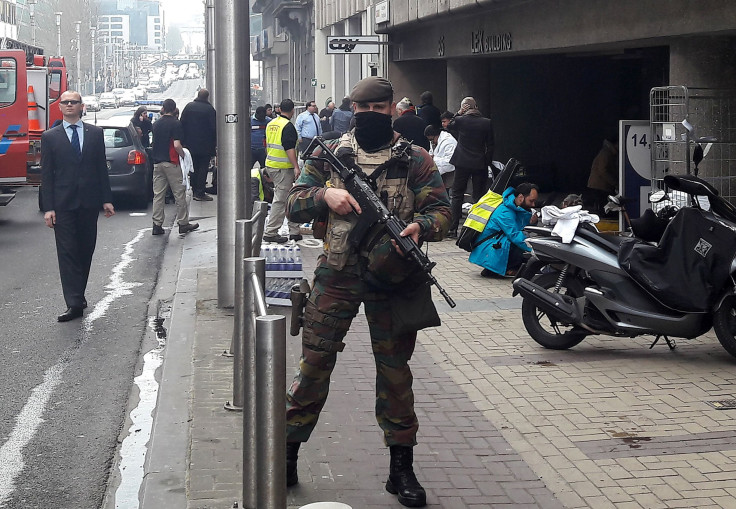Islamic State In Belgium: Were Brussels Attacks Tied To Salah Abdeslam's Arrest? What We Know About ISIS Terror Networks In Europe

Following Tuesday morning’s deadly blasts in Brussels, all fingers are pointing toward the Islamic State group, aka ISIS. The attacks, which left at least 26 dead, came just days after the arrest of alleged ISIS affiliate Salah Abdeslam, who is a prime suspect in last November's terrorist attacks in Paris. But was Abdeslam’s arrest a trigger for Tuesday’s violence? And was ISIS responsible?
Brussels has long been a prime city of concern for intelligence officials regarding terrorist threat. The Paris attacks, which left 130 people dead, were believed to be organized in Brussels. And hundreds of ISIS recruits have returned to a number of European countries, including Belgium, stoking concerns that a terror attack there was ultimately inevitable.
It is too early to ascertain with certainty that Tuesday's bombings were part of a coordinated ISIS attack, but it had all the markings of one. Two explosions occured at the Brussels airport and one at a downtown subway station. At least 130 people were reportedly wounded in addition to the 26 people killed. Members of ISIS have reportedly taken responsibility online. Belgian federal prosecutor Frédéric Van Leeuw has called it a "terrorist attack," and at least one of the attacks seemed to be the result of a suicide bomber.
"These people are sick". #Brussels airport passengers describe moment of explosions.
— BBC Breaking News (@BBCBreaking) March 22, 2016
Live: https://t.co/O3W8C2rpPm https://t.co/NT6nwD0CAW
It’s possible that, following Abdeslam’s arrest, extremists wanted to act before authorities acted on any information they were able to get out of Abdeslam. It’s also possible they wanted to cover up recent losses — like Abdeslam’s arrest — by refocusing media headlines on the group's threat to the West. It's unclear how much coordination sleeper cells in Europe have with ISIS' command in Syria. It's also unclear whether the blasts in Brussels could have been pulled together in the time since Abdeslam's arrest, or whether it was planned earlier.
Abdeslam, 26, is believed to have helped carry out the Paris attacks but may have backed out at the last minute from becoming a suicide bomber himself. In the months that followed, a regional manhunt was launched to track down his whereabouts. Based on the time Abdeslam was able to remain on the run, analysts believe he likely had scores of contacts and supporters in Europe. Some believe he may have built up a new network of extremists to carry out an attack.
“It is not about so-called lone wolves or solitary actors but about a small but significant number people who are deeply embedded in broader communities or neighborhoods,” the Guardian wrote Tuesday. “These people either share the attackers’ extremist views, or are at the very least prepared to support them out of friendship or family ties, or both.”
Facebook activates "Safety Check" feature after #Brussels attacks https://t.co/JF4CAiim5F pic.twitter.com/HrQBo4kZjt
— Bloomberg Business (@business) March 22, 2016
Authorities continue to search for several suspects from last year's attacks in France. Given the latest violence, their list is likely only to grow.
© Copyright IBTimes 2025. All rights reserved.





















